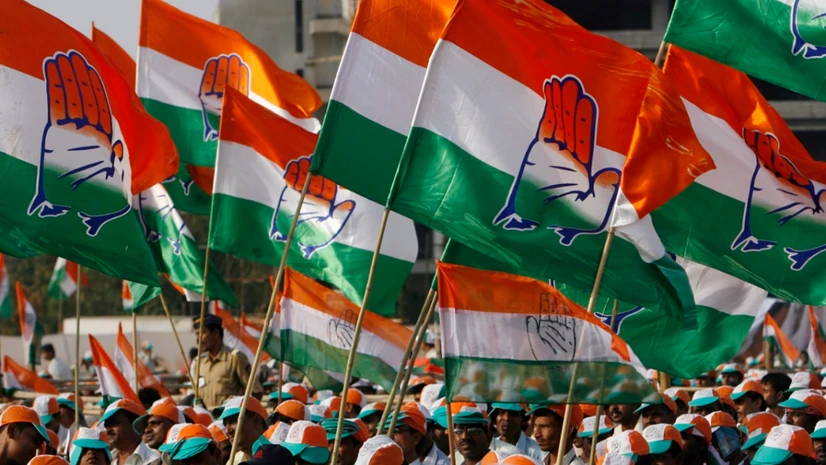Indian National Congress was expected to do well in Telangana Assembly elections but no leader or exit poll agency predicted a victory as clear as it finally came out to be. Congress, with 64 seats to its credit, confirmed victory in 59 seats, and a solid in the rest of the five seats, has secured a majority for itself in the Telangana Assembly. Congreess' win comes after a ten-year rule by the outgoing Bharat Rashtra Samithi (BRS) which emerged out of the statehood movement itself. The BRS has been reduced to 39 seats in the state, with its Chief Minister and party supremo, K Chandrashekhar (KCR), losing the Kamareddy seat to BJP's lesser-known candidate Venkata Ramana Reddy.
Telangana Assembly Election Results: A glance
Congress has secured 61 seats till late evening, the majority mark in Telangana Assembly with a strong lead in three seats. CM KCR contested two seats, Gajwel and Kamareddy, and lost elections in latter. CM KCR won Gajwel by a margin of more than 45,000 votes, securing a total of 111,684 votes.
Telangana Pradesh Congress Committee Chief Revanth Reddy also contested from two seats, Kamareddy and Kodangal. The Congress leader secured a comfortable victory by a large margin of 32,532 votes in Kodangal. Revanth ranked third in the Kamareddy Assembly, behind BJP's Venkata Ramana Reddy and CM KCR. While there is no final word on the matter, Revanth is the leading name to become the next Chief Minister of Telangana.
While BRS was unable to attain a victory in the state, its main leaders, including T Harish Rao, K T Rama Rao, and K Sanjay, all of whom won their seats by large vote margins.
How did the BJP perform in the Telangana Assembly elections?
More From This Section
BJP fielded its top leaders, including Prime Minister Narendra Modi, Union Home Minister Amit Shah, and Uttar Pradesh Chief Minister Yogi Adityanath, and achieved impressive growth in its seat tally in Telangana. BJP has secured eight seats in these elections. The party fielded three of its MPs from the state to contest for MLA seats in Telangana. These included Dharmapuri Arvind from Koratla, Soyam Bapu Rao from Boath, and Bandi Sanjay Kumar from Karimnagar. All these MPs lost elections.
However, the BJP has gained a significant jump in its vote share, which now stands close to 14 per cent. For comparison, AIMIM has secured seven seats for itself with only a 2.20 per cent vote share. BJP has certainly left a mark in Telangana in these elections as it aspires to widen its reach in South India.
The superstar candidate for BJP will be Venkata Ramana Reddy who contested from Kamareddy and defeated heavyweight leader Revanth Reddy and CM K Chandrashekhar Rao (KCR).
How did the Telangana election issues culminate into results?
Differing from the voters in Rajasthan, Madhya Pradesh, and other Hindi-belt states, Telangana voters are more concerned about the developmental politics and welfare schemes a government can promise. This is evident in the manner in which the parties portrayed themselves as the intense election campaign season began.
Congress' "six guarantees" were among the most talked-about subjects during Telangana elections. Congress not only made lucrative promises but was also efficient in driving the schemes home. The party is known to have spoken to cylinder-delivery boys to distribute the "six guarantees" pamphlets and talk to the women in the house about the same as they delivered the LPG cylinder.
BJP leaders made targeted attacks on the KCR government for nepotism and for serving the interests of KCR and his extended family.
Apart from this, Congress reiterated the corruption charges on the Bharat Rashtra Samithi (BRS) government and made sure that the Kaleshwaram Lift Irrigation Project was caught in a storm of controversy. BRS tried its best to get away with these allegations.
Anti-incumbency against the KCR government
While it is unclear if voters in Telangana bought the promises made by the Congress, there is no denying the fact that KCR ruled the state for a decade since it was carved out of Andhra Pradesh in June 2014. Anti-incumbency appears to have played a major role in the manner in which the election results have come about.

)
